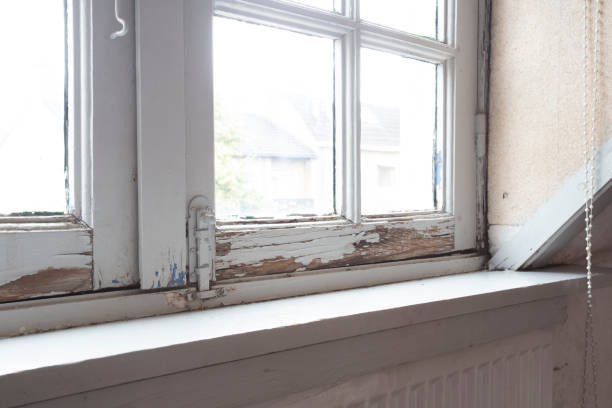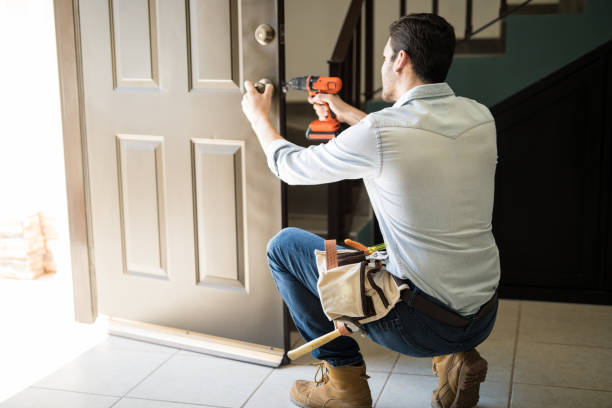When it comes to selling a home, showings are a crucial step in the process. Potential buyers want to see the property in person before making such a significant purchase. However, the showing itself is just the beginning.
The feedback received after a showing can provide valuable insight into what buyers liked and didn’t like about the home and can help the seller make necessary changes to increase the chances of a successful sale. In this article, we will explore the importance of obtaining feedback after a showing and how it can be used to improve the home-selling experience.

Gather the Right Information
Obtaining feedback after a showing is key to understanding what buyers liked and didn’t like about the home. To get the most valuable feedback, it’s important to ask the right questions. So, to begin, let’s explore the best questions to ask buyers to gain valuable insight into their thoughts and opinions about the property.
First Impressions
When asking buyers for their thoughts on the property, it’s important to note that they may not always give you an entirely honest answer. Some may feel the need to sugarcoat their feedback by using polite language or making general statements such as “It was nice.” To gain a true understanding of what they liked and didn’t like, consider asking follow-up questions to dig deeper into their feedback, such as what were their favorite features of the property, or did anything interesting stand out to them.
How Does it Compare to Other Options?
Asking buyers to compare your home to others on the market can give you valuable insight into what type of home they are looking for and how yours measures up. Through this question, you may discover unique selling points of your home, such as superior sun exposure or larger square footage. Additionally, you may gain knowledge about other homes in the neighborhood and how they compare to yours, which can help you position your home more effectively to potential buyers. When looking at comparables, try to keep the following in mind:

- Size of lot / sqft of home
- Bedroom & bathroom count
- Renovations & upgrades
- Home additions
- Recent selling prices
- Neighborhood amenities
Best Features
It’s possible that your home has features that you may have overlooked or underestimated the importance of to buyers. When a buyer expresses enthusiasm about a specific aspect of your home, it’s worth asking for more information about why it stands out to them. This can give you a better understanding of what buyers are looking for and can also reveal unexpected selling points of your home. For example, if a buyer comments on the beauty of your kitchen, you may learn that the skylights are a major draw and can highlight this feature to other buyers. If this is the case, considering adding that feature into your remarks about the property on the MLS to ensure all potential buyers notice it as well.
Least Favorite Features
Asking buyers for their opinion on specific features of the home can provide feedback on what needs improvement. For example, a buyer might mention that they dislike the color of a room or that the carpeting is worn. By gathering opinions from multiple buyers and noting common comments, you can identify areas of the home that need updating. Based on the feedback, you may choose to repaint the walls, replace the carpeting, or even offer a decorating allowance to potential buyers in your home marketing materials. This can help improve the appeal of the home to potential buyers.



The Price
When a buyer expresses that the price of your home is too high, it’s important to ask follow-up questions to understand the basis of their comment. It’s also worth noting that some buyers may be interested in viewing a home even if it is out of their price range. Furthermore, soliciting buyers’ opinions on what price they would consider fair for the home can provide valuable insight into whether you need to adjust the price. Keep in mind that buyers may not always be honest if they think the price is too low, so it’s essential to gather feedback from multiple sources before making any adjustments. You want the price the home at the amount that is right for you, but pricing it too high compared to others on the market can cause it to sit without selling for too long, so price is always something you want to have feedback on.
Living in the Home
When a buyer starts to envision their furniture in your home, it is a sign that they may be interested in making an offer. Discussing the different ways you have arranged furniture in the home over the years can help them visualize themselves living in the space. However, if a buyer expresses disinterest or has a specific concern, it’s imperative to ask for more information to understand their perspective.

For instance, if a buyer expresses that they need an office space and your home does not have an extra room, you can suggest alternative solutions, such as converting a spare room or creating a home office in a different area of the home that might not be immediately obvious.
Maximize the Information
Gathering feedback from buyers is a crucial step in the home-selling process, but it’s important to remember that it’s useless if you don’t take the time to use the information. Therefore, carefully consider the feedback you receive and make any necessary changes to increase the chances of a successful sale. This may mean making repairs or staging changes or even reevaluating the asking price.
However, you should also keep in mind that it’s not just about making the changes but also making sure they are the right ones. It’s vital to look at the feedback holistically and make sure that the changes align with the overall goal of selling the home. Failure to act on the feedback can be detrimental to the home-selling process and may lead to a longer time on the market or lower offers.
Feedback and Adjustments: Closing Thoughts
Though it’s an easy step to overlook, don’t forget to gather feedback and use it to your advantage. This information provides valuable insight into what buyers liked and didn’t like about the home and can help you make necessary changes to increase the chances of a successful sale. Regardless of what you decide to do, just remember that it’s useless to gather the information if you don’t take the time to use it toward making the necessary adjustments to your home and strategy.


